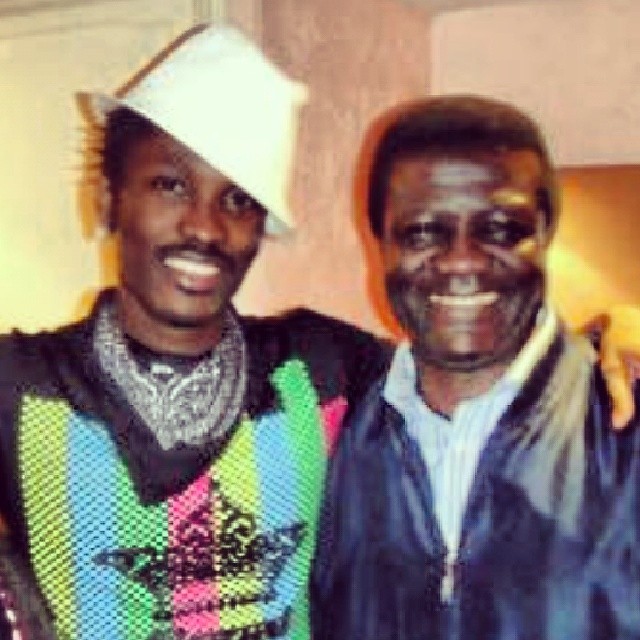Nii Addo Quaynor, popularly known as Tinny, started off his music career as a rapper who delivered his lines in the Twi dialect in the early 2000s.
However, one of the producers to give him exposure, Hammer of the Last Two, was not impressed with his flow in the aforementioned language, knowing very well the rapper was a Ga by birth.
“Tinny also fell victim to that Twi stigma, the status quo… he had to break it because everybody was rapping in Twi. Ga wasn’t popular so nobody wanted to risk it. So he himself as a Ga, he didn’t want to rap in Ga,” Hammer of the Last Two told Andy Dosty on The Library on Hitz FM.
The “Oye Ohene” producer also expressed how he measured the young rapper’s choice of language for delivery.
“Every time I heard him rap in Twi, I was appalled. That was because his Twi didn’t sound strong enough. He sounded like someone who was trying so hard. The tone sounded like a Ga person trying to speak Twi. I didn’t like it,” he recalled.
Despite the sound engineer’s dislike for Tinny’s flow in the Twi language, he appreciated the Osu native’s craft and energy. Hammer also revealed how he steadily managed to encourage Tinny to switch from rapping in Twi to the Ga dialect. Initially, the “Makola Kwakwe” hit-maker was sceptical to heed to Hammer’s advice – one that will set him apart from the rest at the time.
“I loved his perfect timing, style, bounce and delivery. But the Twi was wrong. Totally wrong. And so I had a chat with him, he didn’t want it – he was afraid that his album would fail if he rapped in Ga. I told him “No, you are the first of your kind. You need to do this”, Hammer said.
The new direction proposed by Hammer of the Last Two to Tinny was one that created a slight disagreement between the two. It even went further to get Tinny’s father, Mr Ricky Tetteh Quaynor, involved. The father suggested that the producer and the artiste met each other halfway, thus, having Tinny blend Twi with Ga.

At the end of the day, when Tinny decided to go with his father’s suggestion, he realized Hammer of the Last Two was rather right for proposing that he stuck to Ga in order to stand out from the rest.
“Finally, I caved in and agreed with him. Once he came out, he noticed that I was right, and has been pushing for rapping in Ga ever since,” Da' Hammer said.
In conclusion, the “Obe Do Ba” producer urged people to overcome their fears when trying something new.
“It is important that people understand that you can be the first of your kind. Do not be afraid.”
Although Tinny had other songs recorded and ready to be released, he earned his major breakthrough into the music scene from the remixed version of Obrafour’s “Oye Ohene”
The stories behind Hammer’s productions and the artistes he coached continue – the next episode of The Library with Andy Dosty airs on Friday, 4th March 2022 at 10 a.m. on Hitz 103.9 FM.
Latest Stories
-
All set for Joy FM Prayer Summit for Peace 2024
2 mins -
Managing Prediabetes with the Help of a Dietitian
21 mins -
Joy FM listeners criticise Achiase Commanding Officer’s election comment
42 mins -
Legal Aid Commission employees threaten strike over poor working conditions
45 mins -
Ghana ranked 7th globally as biggest beneficiary of World Bank funding
54 mins -
IMF board to disburse $360m to Ghana in December after third review
59 mins -
Former Bono Regional NPP organiser donates 13 motorbikes to 12 constituencies
1 hour -
Securities industry: Assets under management estimated at GH¢81.7bn in quarter 3, 2024
1 hour -
Gold Fields Ghana Foundation challenges graduates to maximise benefits of community apprenticeship programme
3 hours -
GBC accuses Deputy Information Minister Sylvester Tetteh of demolishing its bungalow illegally
3 hours -
Boost for education as government commissions 80 projects
3 hours -
NAPO commissions library to honour Atta-Mills’ memory
3 hours -
OmniBSIC Bank champions health and wellness with thriving community walk
3 hours -
Kora Wearables unveils Neo: The Ultimate Smartwatch for Ghana’s tech-savvy and health-conscious users
3 hours -
NDC supports Dampare’s ‘no guns at polling stations’ directive
3 hours

